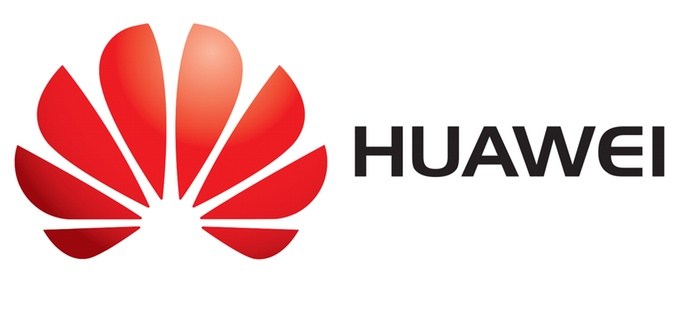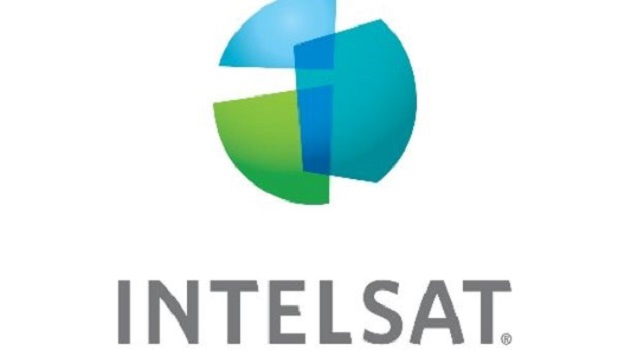News
Nigerian Students Qualify for Huawei Global ICT Competition

Twelve Nigerian students from the University of Ibadan, Ahmadu Bello University, Zaria, and University of Port Harcourt have qualified for the Huawei Global ICT competition following an excellent performance in the cloud and network examination at the just concluded Huawei sub-Saharan Africa region ICT competition finals.

The Huawei ICT Competition, which generally covers examination on the latest ICT technologies such as cloud computing, artificial intelligence, mobile networks and big data, is believed to be the biggest of its kind in Africa featuring 123 student-talents from 13 countries in sub-Saharan Africa, grouped into 41 teams (28 network track and 13 cloud track teams).
At the sub-Saharan regional finals, the students compete for 18 prizes and 12 admission tickets for the Huawei Global ICT Competition Final in October 2020, which will attract more than 300 other student-talents from 66 countries across the globe.
Team Nigeria had 15 students grouped into five teams who competed under the network and cloud segment.
The Nigerian students had a great performance which guaranteed four of the Nigerian teams’ tickets to the Global ICT Competition.
Two teams emerged first position and third position respectively in the Cloud examination, while two other teams of the Nigerian students emerged second position in the Network examination.
Due to the pandemic, the Huawei ICT sub-Saharan regional competition was held virtually.
The Nigerian students participated from the Huawei Technologies Nigeria offices in Abuja and Lagos respectively.
The Huawei ICT competition which is established to foster ICT learning in Africa and bridge the gap between theoretical study and practical experience typically comprises of a national preliminary contest, regional semi-final and a Global final.
Following a successful run at the national finals of the Huawei ICT Competition which was held on December 10th 2019 and had over 23,000 Nigerian students in the contest, 15 students were selected to represent Nigeria at the sub-Saharan Africa Region ICT competition finals which held on September 10th and 11th, 2020 to determine those who will be selected to participate the Huawei Global ICT Competition finals.
One of the Huawei Channel Training Managers for ICT Talent Ecosystem Development in Nigeria, Mr. Weilei, said: “The Huawei ICT competition was first launched in Nigeria in 2017 and currently runs under the Huawei ICT Academy which is in collaboration with more than 90 Nigerian universities. The Huawei ICT Academy was established to train students for free in the latest internationally relevant ICT skills in subjects such as Networks, Cloud Computing and Big Data. As at today, over 10,000 Nigerian students have benefitted.”
He added that “there are 150 instructors from partnering institutions, with 120 of them acquiring various Huawei certifications in different technology track and 250 training classes in various technology tracks, in Routing & switching, storage, cloud services, big data, W-Lan, security and AI delivered by Huawei certified instructors.”
Director, Huawei Nigeria Enterprise D&S Department, Ms. Melissa Chen, said: “The competition-related training has helped over 300 students receive job offers. In Nigeria alone, over 3,000 Nigerian students trained by Huawei have successfully passed the Huawei professional certification exams. Huawei hopes to skill up more than 700,000 ICT professionals by 2023. The aim is to bridge the ICT talent gap, advance the digital transformation of industries, and bring digital to every person, home and organization for a fully connected, intelligent world.”
Mr. Kenneth Igwe, another of the Huawei Channel Training Managers for ICT Talent Ecosystem Development in Nigeria, explained how the students were trained adequately for the examination by Huawei certified instructors, following hands-on trainings/internship with the company. He said: “Prior to the ICT competition, Huawei Technologies Nigeria took time out to train 9 of the 15 students who were also given internship opportunities with the company in Abuja and Lagos. Meanwhile, all the students had also been trained since January for this competition and many of them already acquired HCIA, HCIP and HCIP which are globally recognised certifications in various Huawei technology Courses.”
The students and instructors were glad to have qualified to represent Nigeria at the Huawei Global ICT competition which will be held later in the year 2020.
“I am excited we have qualified for the global finals since we have been preparing for this for over 8 months. Huawei gave us free access to their cloud services and also free vouchers to write the HCIP Cloud Services Certification and also support from their engineers” – Abdullahi Muhammad Khalifa, Cloud Team, student from Ahmadu Bello University, Zaria, said.
“Huawei offered us internship opportunities which exposed us to real life projects and has played a major role towards our success in the regional final even as we look forward to a greater performance at the global finals. Connection, Glory, Future, the theme of the Huawei ICT Competition says it all. I am looking forward to the glory of becoming a world champion which will make the future brighter for me,” Ugheoke Anthony Oshiobugie, Network team student from the University of Port Harcourt, said.
“I feel very excited to be participating in the Huawei ICT Global Finals. It took a lot of time and effort to come this far and I am glad our team’s perseverance yielded great results. Huawei provided us with a suitable learning environment during our six weeks internship where we learnt about the emerging technologies such as Cloud and Storage,” Mustapha Abdullahi Jimoh, Cloud Team, and student from Ahamadu Bello University, Zaria, said.
“I am very excited to represent Nigeria in the global final and I will put more effort to bring the Gold medal home. Huawei has helped me in attaining my HCIA and HCIP R&S certifications and I also participated in a lot of rigorous trainings organized by Huawei including but not limited to HCIE training. These certifications and trainings really go a long way” – Abideen Bolaji Olaide (Network Team, student from University of Ibadan)
“I am so excited and honoured to represent Nigeria in the global finals, it has been an awesome experience so far. I was part of the boot camp at the Huawei office Abuja for about 2 months where we (I and my team) were extensively trained and well equipped for the regional finals. I am definitely looking forward to coming out in flying colours and making Nigeria proud at the global finals.” – Ukasanya Elma Tejiri (Network Team, student from University of Port Harcourt).
“What an intensive support from Huawei through the provision of quality trainings and exam vouchers right from the associate level to the expert level also the provision of quick access to study guides.” – Badiru Toheeb Adeniyi (Network Team, student from University of Ibadan).
“This competition made me learn a lot of things. Previously, I could not configure a Huawei enterprise router via the CLI. But after preparing for this competition, I have been able to configure, install and integrate some enterprise links using Huawei enterprise routers. The preparation for this competition has enabled me to master most of the syntax for setting up a Huawei router/switches via CLI. The Huawei Academy has been so helpful in our preparation for the Regional finals through well-planned online classes, lucid presentation via Meet/Zoom mobile Apps and excellent tutors. During the classes, we were given all the materials needed for the exam” – Ohagim Chinemere (Network Team, student from University of Port Harcourt).
News
Igniteher BootCamp: A Pathway to Women Empowerment and Economic Growth

The IgniteHer Bootcamp, a flagship initiative by the National Information Technology Development Agency (NITDA) in collaboration with the Japan International Cooperation Agency (JICA), concluded successfully on Friday, March 7, 2025.

Over the course of five impactful days, the program empowered 90 female entrepreneurs with essential knowledge, skills, and networks to build and scale successful businesses. Through expert-led sessions and hands-on learning, participants gained practical insights into business development, financial management, and digital transformation.
The IgniteHer Bootcamp was specifically designed to foster digital literacy, market opportunities, and the use of technology while addressing systemic barriers limiting women’s participation in entrepreneurship.
It aimed to bridge the gender gap in business and technology, equip women with critical business knowledge in financial management, business planning, and sustainability, provide access to mentorship opportunities and industry experts to support business growth. Each day of the bootcamp delivered high-impact value, ensuring participants left with actionable strategies to strengthen their entrepreneurial journey.
The first day focused on understanding gender disparity in business. Participants explored systemic barriers limiting women in entrepreneurship, including funding gaps and societal biases, while gaining strategies to overcome these challenges.
The second day delved into the fundamentals of a business plan, break-even business analysis, and the Lean Business Model Canvas, along with a practical session on setting SMART goals, enabling participants to develop structured business plans.
On the third day, the focus was on digital literacy, the use of cloud storage, online communication, internet safety, and human resource and financial management. In addition, there were practical sessions on the use of digital tools for content creation, bookkeeping, and business management.
The fourth day explored digital transformation and business growth, where entrepreneurs learned how to leverage technology and artificial intelligence to scale their businesses, covering digital branding, digital marketing, and essential digital tools for operational efficiency.
The final day featured a panel discussion with industry experts—a business hub manager, an entrepreneur, and a venture capitalist—moderated by an ecosystem accelerator who shared insights on business growth, funding opportunities, and overcoming challenges in entrepreneurship.
The session concluded with an open discussion, allowing participants to reflect on their learning and plan their next steps. The bootcamp was highly interactive, with participants engaging in discussions, practical exercises, and real-world case studies.
Many participants shared their key learnings on LinkedIn and other platforms, demonstrating the program’s lasting impact.
One participant, Imaobong Edukere, shared her experience, stating: “The IgniteHer Bootcamp has been an incredibly transformative experience for me.
It’s my first time being in a strong network of like-minded women entrepreneurs and drinking from their knowledge… I now feel more prepared to implement what I’ve learned and make a lasting impact in society.
Thank you, NITDA and JICA, for this valuable growth, timely support, and once-in-a-lifetime opportunity—I have just been IGNITED!” Another participant, Hadiza Isah Mohammed, wrote: “Hello, good morning everyone. This is one of the most inspirational bootcamps I’ve ever attended. I was at the point of dropping my dreams because everything seemed not to work, but I’ve been ignited and ready to continue my journey. Kudos to the organizers.”
The initiative fostered a strong network of women entrepreneurs, promoting mentorship and long-term collaboration. The session ended with a vote of thanks from the Special Assistant to the Director General of NITDA, stressing the open opportunity for a tour to Japan for select businesses and startups who will have the opportunity to participate in a startup event in Japan scheduled for August 2025.
This event provides a unique opportunity to network and partner with Japanese companies. Participants have been provided a link to apply their learnings and submit a pitch deck or business plan on their respective and prospective companies. Indeed, NITDA is ready to handhold these businesses to make an impact in line with President Bola Ahmed Tinubu’s Renewed Hope Agenda on economic growth.
With overwhelmingly positive feedback, the IgniteHer Bootcamp stands as a transformative program, driving progress in bridging the gender gap in business and empowering women to thrive in the digital economy.
News
Intelsat, MaxIQ Space Expand STEM Learning to Educators in Multiple African Countries

Intelsat operator of one of the world’s largest integrated satellite and terrestrial networks and educational resource provider MaxIQ Space, are expanding efforts to deliver Intelsat’s Africa Space STEM (Science Technology Engineering and Math) Program to schools in four different countries across Africa.

The program, now in its fifth year, aims to increase to a total of 12 schools and expand to include in-person learning for students in Kenya, Nigeria, South Africa and Senegal.
Participants will receive in-person, in-community learning with subject matter experts on Space STEM curriculum mixed with innovative STEM kits, hands-on training, and exclusive resources to integrate space science, sustainability and IoT education into their classrooms.
The newly adapted 2025 program is focused on empowering schools and educators to build a lasting impact on African education systems, ensuring thousands of students gain the skills and inspiration needed to thrive in STEM careers. STEM skills build a future-ready workforce, advancing national development goals and boost technological capabilities.
“As a pioneer in satellite technology, Intelsat remains committed to maximizing its contribution by inspiring the next generation and connecting African students to real-world applications of space technology,” said Rhys Morgan, RVP of the EMEA region for Intelsat.
“With Africa emerging as a key frontier for space infrastructure, it is essential to equip future leaders with the knowledge and skills to drive this transformation. We are honored to play a role in preparing the young generation for this future,” said Judi Sandrock, program manager at MaxIQ Space.
Schools and teachers in the four participating countries are invited to apply now for this fully funded opportunity to bring real-world space education into their classrooms. The deadline for applying is March 31st, 2025.
News
Konga Health Set to Revolutionize Skincare Awareness Among Students

Konga Health, Nigeria’s leading technology-enabled distributor of quality health and beauty products, is set to engage students across tertiary institutions in a series of skincare consultations, product sampling, and expert-led tutorials to promote skincare education and wellness.

This initiative, which kicks off in March 2025, aims to empower young adults with the knowledge and tools to make informed skincare choices while fostering a culture of self-care and confidence.
The campaign will commence with Lagos State University (LASU) on Thursday, March 13, 2025, followed by Yaba College of Technology (YABATECH) on Friday, March 14, 2025.
Other institutions slated to benefit from this initiative include the University of Lagos (UNILAG), Lagos State University Teaching Hospital (LASUTH), and Lagos University Teaching Hospital (LUTH). Specific dates for these institutions will be announced via Konga Health’s social media handles, ensuring students stay informed and prepared to participate.
At the heart of this initiative are panel discussions featuring renowned dermatologists and influential skincare advocates. These sessions will provide students with invaluable insights into skincare best practices, common misconceptions, and the science behind maintaining healthy skin. Attendees will also have the opportunity to engage directly with experts, ask questions, and receive personalized advice tailored to their unique skin types and concerns.
In addition to the educational component, Konga Health, a business that boasts an exclusive partnership with L’Oréal, the world’s largest cosmetics brand, will offer free product sampling, allowing students to experience high-quality skincare products firsthand.
This hands-on approach not only enhances learning but also helps participants identify products that work best for their skin. To further sweeten the deal, there will be exciting giveaways of beauty products, giving students the chance to take home premium skincare items.
According to an insider at Konga, this initiative is part of the company’s broader commitment to promoting health and wellness among Nigerians. By targeting students, Konga Health aims to instill lifelong skincare habits early, ensuring that young adults are equipped to prioritize their skin health as they navigate the challenges of academic life and beyond.
This innovative campaign underscores Konga’s dedication to leveraging its platform for impactful, community-driven initiatives. As the program rolls out across campuses, it promises to be a transformative experience for students, blending education, engagement, and empowerment in a way only Konga can deliver.

 Telecom1 day ago
Telecom1 day agoST Team Partner Proxy Coding School to Launch Free Tech Skills Initiative

 E-Business1 day ago
E-Business1 day agoGBB to Train Over 300 Civil Servants on Govmail

 Broadcasting1 day ago
Broadcasting1 day agoNAFDAC’s Fight Against Counterfeit Drugs Reaches New Heights with Ibadan Raid

 Telecom7 hours ago
Telecom7 hours agoMTN Nigeria Reaffirms Support for Grassroots Sports During Edo State Visit

 Telecom7 hours ago
Telecom7 hours agoForeign Affairs Minister Amb. Tuggar Lauds Moniepoint as a Nigerian Fintech Success Story

 News7 hours ago
News7 hours agoIgniteher BootCamp: A Pathway to Women Empowerment and Economic Growth

 Telecom7 hours ago
Telecom7 hours agoTelegram Introduces New Features to Address Unsolicited Messages

 News7 hours ago
News7 hours agoKonga Health Set to Revolutionize Skincare Awareness Among Students

























